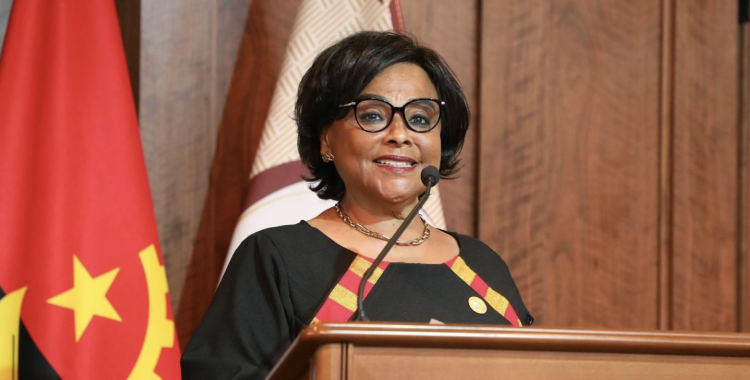"I learned about it through social media (...) I also learned that members of parliament demonstrated, attended the demonstrations, so I hope my office receives any information about this situation so we can analyze it with the appropriate authorities," said Carolina Cerqueira, questioned by Lusa in Luanda, on the sidelines of the opening of the 14th meeting of the Parliamentary Assembly of the Community of Portuguese-Speaking Countries (AP-CPLP).
Police used tear gas on Saturday to disperse hundreds of citizens protesting in Luanda against rising fuel and public transportation prices, criticizing government authorities.
Members of the National Union for the Total Independence of Angola (UNITA) reported being prevented from participating in the protest by the police, in videos circulated on social media.
However, the president of the National Assembly says she is officially unaware of these deputies' participation in the protest: "They say they are participating as citizens; they don't have to explain to me whether they are participating or not. They can participate, but if there are consequences, I have to formally know so I can also take institutional action."
"We live in a democracy, and indeed, if there was any disturbance or any situation that was less advisable or less favorable to this demonstration taking place in an orderly environment of mutual respect, I have not yet received formal information about it in the National Assembly, but we will certainly analyze it because we want Angola to continue to be a country of peace, order, and stability amidst the various political differences that exist," she added.
Hundreds of citizens, including activists, members of civil society, taxi drivers, vendors, students, and members of opposition political parties, joined the march promoted by the so-called social movement against the decree approving the fuel price increase in Angola.
Waving signs with slogans such as "fuel goes up, stomach growls"; "300 kwanzas is too much," "we don't accept laws that kill people," "we're tired of eating from garbage," "the country is good, but the MPLA (ruling party) is useless," the march began in the square outside the São Paulo Market.
"Protests are constitutionally protected in Angola. According to the Constitution of the Republic of Angola, a demonstration is a political act carried out through mechanisms of coordination, information, and consultation with public order institutions, and that's what happened," Carolina Cerqueira emphasized.
Intending to reach Largo Maianga, 200 meters from the National Assembly headquarters, the protesters encountered a second barrier, already manned by Rapid Intervention Police (PIR) officers.
Determined to march to the center of the capital, many protesters sought alternatives to escape the numerous police checkpoints set up on Luanda's main streets, and some protesters even managed to reach the vicinity of the Luanda Provincial Government headquarters.
To curb the protesters' demands, some of whom claimed they were headed for the Presidential Palace, the police dispersed the march by firing tear gas.
The situation generated panic among protesters and passersby, who sought refuge, shouting and criticizing the PIR's stance. The police launched tear gas canisters at several points, resulting in injuries and some people fainting.
The fare for shared taxis in Angola has increased to 300 kwanzas per trip and that for urban buses has increased to 200 kwanzas per trip, as of Monday, a measure that follows the increase in the price of diesel, which rose from 300 to 400 kwanzas per liter as of July 4.







